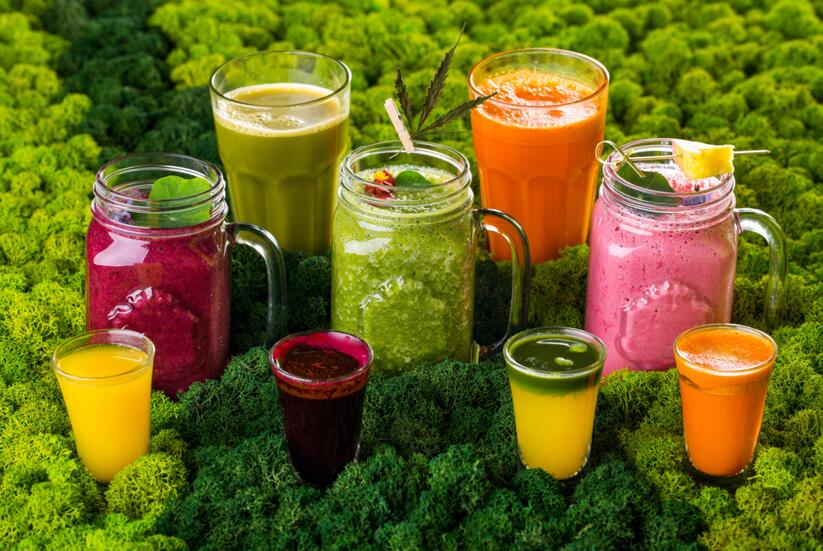What Are Water Soluble Vitamins?
Think of Rohan, a fitness enthusiast who wants his body to work at its best. After reading about vitamins, he often wonders: What exactly are water-soluble vitamins, and why do they matter?
Water-soluble vitamins are a group of essential nutrients that dissolve in water. The two major groups here are vitamin C and the eight B vitamins collectively called vitamin B complex. They travel freely through the bloodstream and are not stored in large amounts in the body, unlike fat-soluble vitamins like A, D, E, and K.
Because they’re water soluble, these vitamins need to be replenished regularly through diet or supplements. The body expels excess amounts through urine, which is why deficiency can occur if intake is low.healthline+1
Functions of Water Soluble Vitamins in the Body
Each water-soluble vitamin plays a distinct but interconnected role in keeping the body healthy, like an orchestra working in harmony.
- Vitamin C helps build and repair tissues, heals wounds, boosts immunity, and acts as a powerful antioxidant. It also helps absorb iron from plant-based foods.
- Vitamin B complex includes B1 (thiamine), B2 (riboflavin), B3 (niacin), B5 (pantothenic acid), B6 (pyridoxine), B7 (biotin), B9 (folate), and B12 (cobalamin). Together, they help convert food into energy, support brain function, maintain healthy skin and red blood cells, and regulate metabolism.
Their water solubility allows them to participate in many enzyme reactions vital for growth and cell function.
Food Sources Rich in Water Soluble Vitamins
Rohan discovered it was easy to include water soluble vitamins naturally by eating a varied diet rich in fresh fruits, vegetables, grains, and proteins.
| Vitamin Group | Food Sources | Notable Examples |
| Vitamin C | Citrus fruits, strawberries, bell peppers | Oranges, lemons, kiwis, broccoli |
| Vitamin B1 (Thiamine) | Whole grains, legumes, nuts | Brown rice, lentils, sunflower seeds |
| Vitamin B2 (Riboflavin) | Dairy, eggs, green leafy vegetables | Milk, spinach, almonds |
| Vitamin B3 (Niacin) | Poultry, fish, whole wheat, peanuts | Chicken, tuna, brown rice |
| Vitamin B5 (Pantothenic Acid) | Mushrooms, avocados, eggs | Shiitake mushrooms, eggs |
| Vitamin B6 (Pyridoxine) | Bananas, chicken, potatoes | Chicken breast, potatoes |
| Vitamin B7 (Biotin) | Egg yolks, liver, nuts | Egg yolks, almonds, walnuts |
| Vitamin B9 (Folate) | Leafy greens, legumes, fortified cereals | Spinach, chickpeas, enriched bread |
| Vitamin B12 (Cobalamin) | Meat, fish, dairy products | Salmon, yoghurt, beef |
Cooking methods can reduce vitamin content, especially for vitamin C and some B vitamins, so fresh or lightly cooked foods are best.
Storage and Deficiency: Why Water Soluble Vitamins Need Daily Attention
Unlike fat-soluble vitamins, water soluble vitamins do not stay in the body for long. Because they dissolve in water and excess is eliminated in urine, regular intake through diet or supplements is crucial.
Deficiency symptoms vary:
| Vitamin | Deficiency Symptoms |
| Vitamin C | Fatigue, gum inflammation, slow wound healing (scurvy) |
| B1 (Thiamine) | Weakness, nerve damage, and confusion (beriberi) |
| B2 (Riboflavin) | Sore throat, mouth cracks |
| B3 (Niacin) | Dermatitis, diarrhoea, dementia (pellagra) |
| B6 (Pyridoxine) | Anaemia, depression, and confusion |
| B7 (Biotin) | Hair loss, skin rash |
| B9 (Folate) | Anaemia, birth defects during pregnancy |
| B12 (Cobalamin) | Fatigue, nerve problems, and memory loss |
Certain groups, like pregnant women, older adults, vegetarians, and people with digestive conditions, should be mindful of these vitamins. Multivitamins can help fill gaps when the diet falls short.
Soluble vs Fat-Soluble Vitamins: What’s the Difference?
A quick comparison table can help understand how water-soluble vitamins differ from fat-soluble ones:
| Aspect | Water Soluble Vitamins | Fat Soluble Vitamins |
| Solubility | Dissolve in water | Dissolve in fats and oils |
| Storage | Not stored, daily intake needed | Stored in the liver and fat tissues |
| Excretion | Excess is excreted in urine | Excess stored, risk of toxicity |
| Examples | Vitamin C, B vitamins (B1-B12) | Vitamins A, D, E, and K |
| Deficiency Risk | Quickly develop if intake is low | Deficiency develops slowly |
- Water soluble vitamins like vitamin C and vitamin B complex are essential for energy, immunity, and metabolism.
- These vitamins must be replenished daily since the body does not store excess amounts.
- You’ll find foods high in B vitamins and vitamin C in fruits, vegetables, grains, dairy, and protein sources.
- Deficiency can cause specific health issues, but it is preventable with a balanced diet or multivitamins.
- Understanding soluble vs fat-soluble vitamins helps you manage your nutrient intake better.
Curious about balancing your vitamins? Explore our guide on multivitamins and how to complement your diet for complete nutrition.
